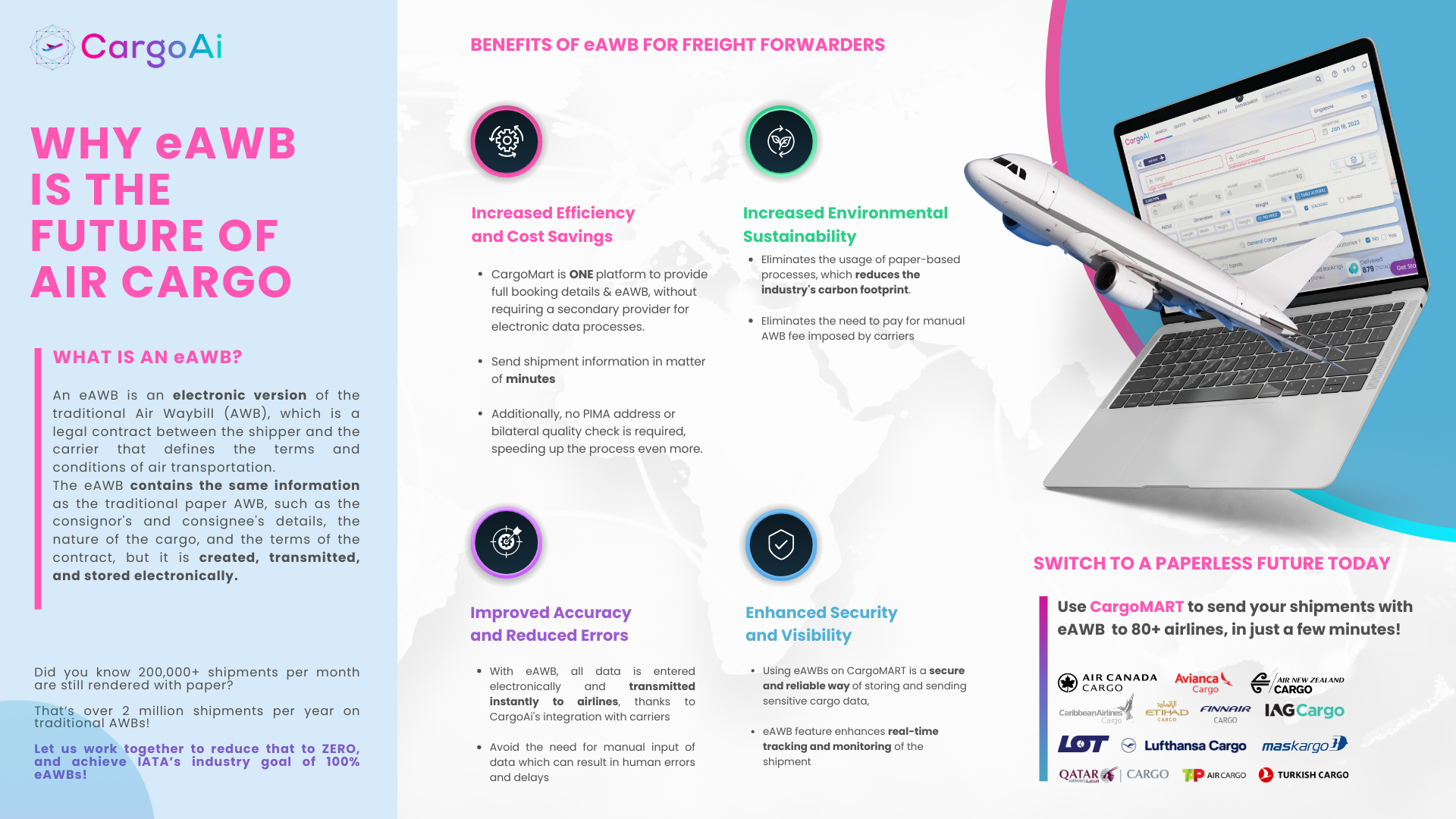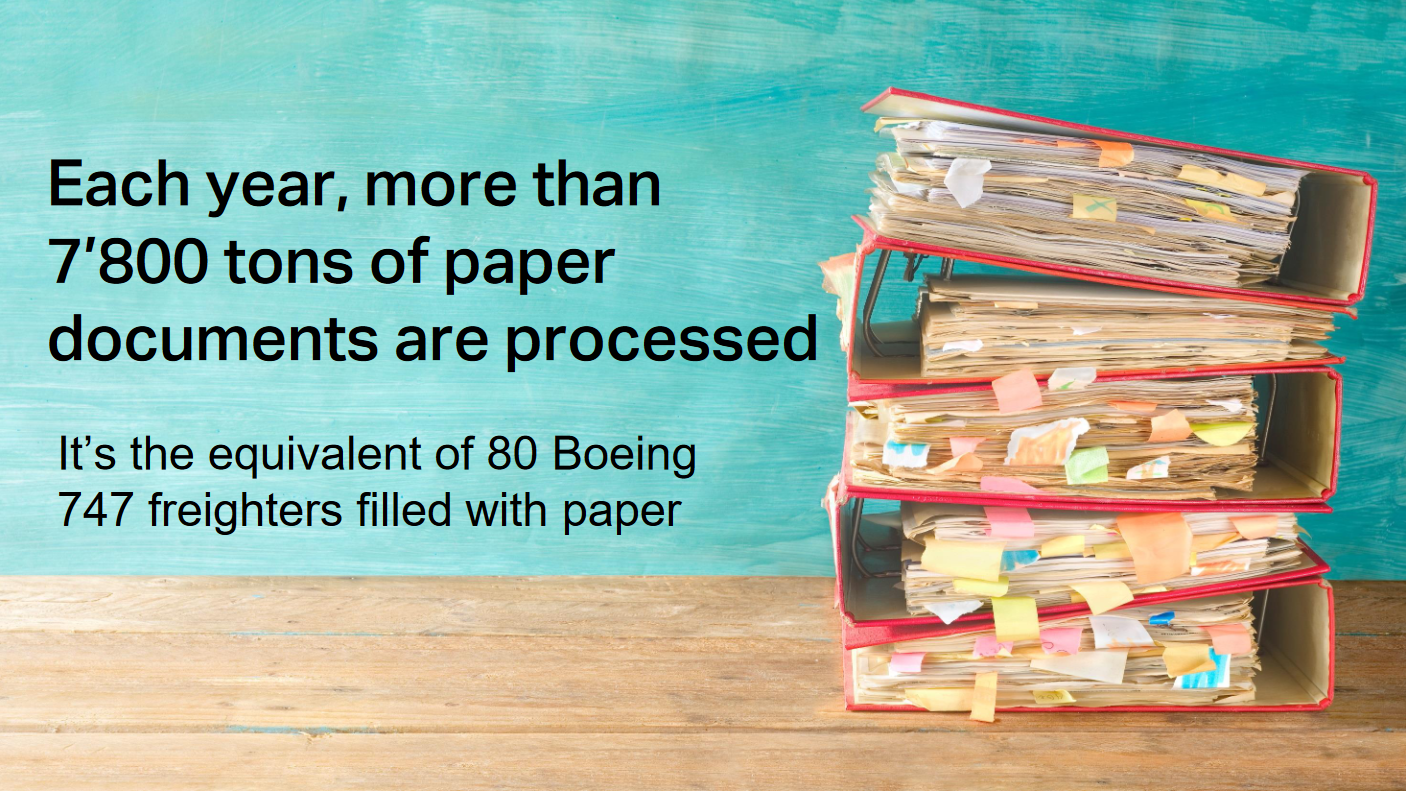
Why eAWB is the Future of Air Cargo
In recent years, the air cargo industry has been evolving at a rapid pace, and technology has played a significant role in transforming the way goods are transported. One such technological advancement is the electronic Air Waybill (eAWB) which has been advocated by IATA and several airline carriers as the way forward for the airfreight industry.
In this blog post, we will highlight the benefits of eAWB for freight forwarders and champion for its rapid adoption.
Are you more of a video person? Click here to watch the video instead.\
First, let's define what an eAWB is. An eAWB is an electronic version of the traditional Air Waybill (AWB), which is a legal contract between the shipper and the carrier that defines the terms and conditions of air transportation. The eAWB contains the same information as the traditional paper AWB, such as the consignor's and consignee's details, the nature of the cargo, and the terms of the contract, but it is created, transmitted, and stored electronically.
CargoAi’s Supports the Industry Mission
IATA’s goal of achieving 100% eAWBs by the end of 2022 has not yet been achieved, despite eAWB being established as the default contract of carriage for all air cargo shipments since 1 January 2019.
Currently the industry has over 85% adoption of eAWBs, and freight carriers are contributing to the effort by imposing fines for paper AWBs to move towards this new era of default digital processing.
CargoAi’s goal is to help get the air cargo industry to the finishing line of 100% eAWB, by making the process of sending eAWB simple and quick, on its digital marketplace, CargoMART.

What are the benefits of using eAWB in sending air cargo shipments?
Increased Efficiency and Cost Savings
Forwarders only need ONE platform, CargoMART, to provide full booking details & eAWB, allowing them to save time and money by eliminating the need for paper-based processes, such as printing, mailing, and handling physical documents.
When sending an eAWB on CargoMART, freight forwarders need not do a bilateral quality check with the carrier beforehand, nor input a PIMA address, speeding up the procurement process. This narrows their work down to what they do best: procuring the best rates and ensuring the goods are delivered on behalf of their shippers.
Creating and sending eAWBs is done electronically within CargoMART in a matter of minutes, without requiring a secondary provider for electronic data processes.
For airlines, the added benefit is all the data is centralized in one transmission, improving efficiencies in freight transportation.
Improved Accuracy and Reduced Errors
Negate the risk of errors and inaccuracies that come with traditional AWBs such as incorrect data entry, lost or damaged documents, and delays in manual AWB handling. With eAWB, all data is sent instantly to airlines, thanks to CargoAi’s direct integration with 80+ carriers.
Enhanced Security and Visibility
The electronic transmission of eAWBs on CargoMART is a secure and reliable way of sending sensitive cargo data, such as the type and value of the goods being transported. Additionally, eAWB feature on CargoMART enhances real-time tracking and monitoring of the shipment.
Increased Environmental Sustainability
Lastly, eAWB is an environmentally sustainable solution for the air cargo industry. Traditional AWBs require a significant amount of paper and printing resources, which has a negative impact on the environment.

Further, carriers now charge for paper AWBs. CargoMART's eAWB feature eliminates the usage of paper-based processes or needing to pay for manual AWB fee, which reduces the industry's carbon footprint.
Switch to a paperless future today
Usage of eAWB offers increased time-savings, accuracy, security, and visibility over its traditional form, which should drive forwarders to make it a default process to keep their operations efficient. With the blend of carrot (seamless and efficient process on CargoMART) and stick (carrier fees for paper AWB), CargoAi is putting its best foot forward to help the industry get to the finishing line to achieving 100% eAWB as soon as possible.